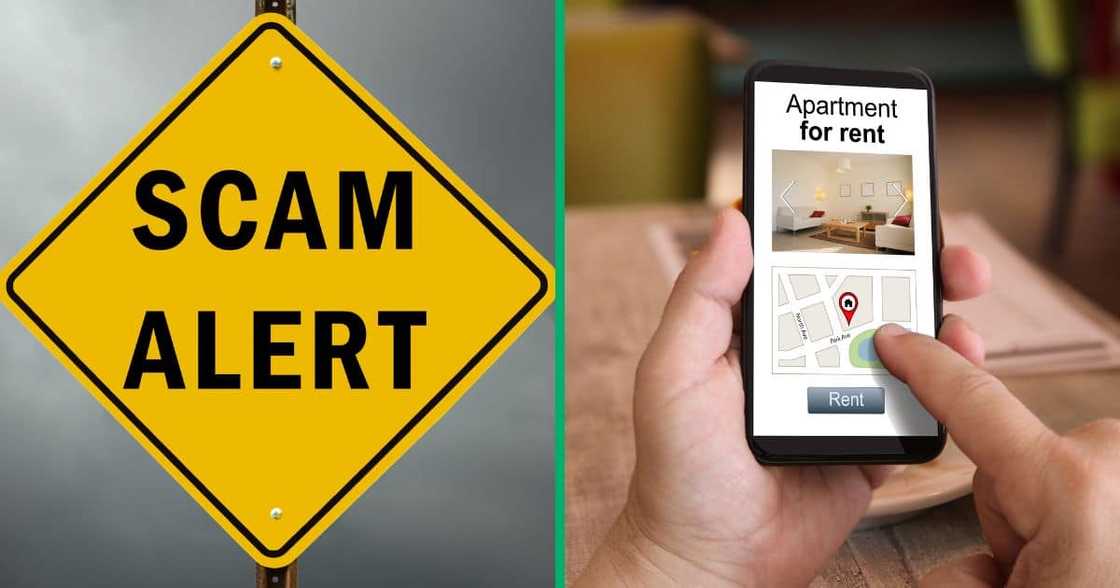Explained: Housing Property Scams in South Africa and How to Spot Them
- Housing property scams in South Africa, including RDP housing scams, are becoming more sophisticated
- Scammers use social media, fake government pages and false promises to deceive victims
- Rental scams are also on the rise, with criminals posing as landlords or real estate agents to trick tenants
PAY ATTENTION: Have you recorded a funny video or filmed the moment of fame, cool dance, or something bizarre? Inbox your personal video on our Facebook page!
Scammers are always looking for new ways to rob people of their hard-earned money. Whether you are rich or poor, criminals will target anyone as long as there is a cash guarantee at the end of the deal.

Source: Getty Images
In South Africa, housing property scams have been happening for a long time, but they are getting more savvy and many people seem to be failing them.
Briefly News looks at the various housing property scams and how to protect yourself.

Read also
Gauteng Provincial Government hits back after South Africans slam the government for not emailing appointment letters to 35000 youth
1. How criminals scam people into "buying" RDP houses
The RDP housing scam has been around for a while and government has issued several statements warning citizens, but people still fall for them.
PAY ATTENTION: Сheck out news that is picked exactly for YOU ➡️ click on “Recommended for you” and enjoy!
The RDP scam is simple and can fool anyone desperate enough to pay whatever money is "necessary" to get housing. This scam thrives because of the RDP housing backlog.
In 2022, the Gauteng Department of Human Settlements announced the RDP housing waiting list backlog, with more than 1.2 million applicants waiting for a house. Scammers have taken advantage of the desperation and use social media to dupe people into thinking they can pay to get bumped up the waiting list, reports City Press.
Earlier this year, the department warned citizens not to fall for social media accounts, posters and fake notices promising RDP houses. Scammers sometimes use fake social media pages that seem like official government pages.

Read also
90s Spur menu in TikTok video reminds Mzansi of how prices soared over 30 years, SA floored by R9 burgers and ribs
They sometimes use fake pages of politicians to dupe their victims further. According to TimesLIVE, the RDP housing scam has popped up in Cape Town as well.
These scams are not only about bribes. Scammers sometimes advertise the "sale" of new RDP houses. Again, these advertisements might seem legit, and people might fall for them if they are desperate enough.
Here's how you can avoid an RDP house scam:
- The government will never sell you an RDP house.
- The government will never ask you for bribes to get pushed up the waiting list. If you are asked for a bribe, report it to the relevant department.
- RDP houses are free. If you are asked to pay any amount, you are being scammed.
2. What you need to know about rental scams in South Africa
Rental scams are rising in South Africa and seem more prominent in major cities, but they can happen anywhere. This kind of scam has become so prevalent that it was featured on Carte Blanche because many people have lost a lot of money.
According to Thomas Wilkson Attorneys, a rental scam is when a criminal poses as a landlord or real estate agent looking for tenants.
Usually, the person behind the scam will have pictures of the property and, at times, send the would-be-tenant a convincing lease agreement. The scammers then find ways to convince the victim to pay a deposit, and they will disappear after receiving payment.
In other cases, scammers impersonate legit real estate companies and their agents, making it harder to spot the scam. They also duplicate their listings.
How to avoid a rental scam
- Never pay a deposit or any money towards a rental property without seeing the property first.
- Do not pay a deposit before applying for the rental property. Makhosi Kubheka, COO at Communicare (a rental agency in Cape Town), says they never ask for an upfront deposit or payment before the application, reports BusinessTech.
- Always verify that the real estate agent you are speaking to is legit. Verify the agent or the company's details using the Property Practitioners Regulatory Authority website.
- Use legitimate real estate websites and avoid social media listings where possible.
3. How criminals are duping prospective home buyers
Buying a house is a huge and exciting opportunity, but you must be on high alert because you are parting ways with a lot of money to get your dream home. Scammers are always lurking and always finding new ways to dupe unsuspecting victims.
When it comes to buying houses, scammers have found ways to intercept emails between would-be buyers and sellers.
According to IOL, a fraudster will pose as a legitimate real estate agent or conveyancing attorney to divert the buyer’s deposit into their own bank account.
PDL Property Management explains that scammers will use a generic email address, and the email will tell the buyer to send the funds to a specific bank account.
Here's how you can avoid this kind of scam:
- Always verify any changes in the payment methods telephonically. Call the buyer and ask them about the changes in the email.
- Verify the email address. As mentioned, scammers use generic email addresses, but the name might be familiar.
- PDL Property Management explains that the best way to protect yourself is by double checking all details and making sure that the required verification of the bank accompanies any changes of bank account details accounts in question.
Lady who bought R22k RDP home in 2009 evicted, Western Cape official issues warning over housing scam syndicate
Briefly News previously reported that Celiwe Dlula only wanted to provide her family members with a home. Sadly the woman was swindled after she bought an RDP.
The Western Cape housing department chimed in on Celiwe's misfortune. The government branch also addressed how South Africans can fall for housing scams.
Celiwe Dlula shared her story about getting evicted after buying a house for R22 000. After years of living in the house, she got death threats to get her to move out.
PAY ATTENTION: Сheck out news that is picked exactly for YOU ➡️ click on “Recommended for you” and enjoy!
Source: Briefly News




